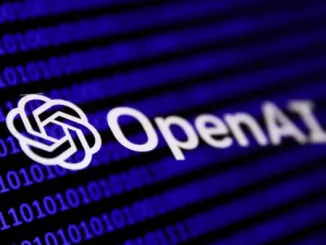
OpenAI has unveiled GPT-4o mini, its latest compact AI model, designed to be both cost-effective and fast. This new model is now available to developers and through the ChatGPT web and mobile apps, with enterprise access beginning next week.
According to OpenAI, GPT-4o mini surpasses leading small AI models in reasoning tasks involving both text and vision. These compact models are gaining popularity among developers for their efficiency and lower costs compared to larger models like GPT-4 Omni or Claude 3.5 Sonnet. They are ideal for repetitive, high-volume tasks.
Replacing GPT-3.5 Turbo as the smallest model offered by OpenAI, GPT-4o mini achieves an 82% score on the MMLU benchmark, outperforming Gemini 1.5 Flash and Claude 3 Haiku. It also excels in math reasoning, scoring 87% on MGSM, higher than both Flash and Haiku.
OpenAI emphasizes that GPT-4o mini is significantly more affordable than previous models, with running costs over 60% lower than GPT-3.5 Turbo. Currently supporting text and vision in the API, it is expected to include video and audio capabilities in the future.
Olivier Godement, OpenAI’s head of Product API, highlighted the affordability of the new model, stating, “GPT-4o mini is a significant step forward in making AI accessible to every corner of the world.”
For developers using OpenAI’s API, GPT-4o mini is priced at 15 cents per million input tokens and 60 cents per million output tokens, with a context window of 128,000 tokens and a knowledge cutoff of October 2023. Although OpenAI has not disclosed the exact size of GPT-4o mini, it is comparable to other small models like Llama 3 8b, Claude Haiku, and Gemini 1.5 Flash, but is faster, more cost-efficient, and smarter according to pre-launch tests.
Independent tests confirm GPT-4o mini’s speed and efficiency. George Cameron, Co-Founder at Artificial Analysis, noted, “GPT-4o mini is very fast, with a median output speed of 202 tokens per second, making it more than twice as fast as GPT-4o and GPT-3.5 Turbo.”
Additionally, OpenAI has introduced new tools for enterprise customers. The Enterprise Compliance API aims to help businesses in regulated industries comply with logging and audit requirements, providing records of time-stamped interactions, conversations, uploaded files, and more. Admins now have more control over workspace GPTs, allowing them to create approved lists of domains for interaction, enhancing customization and compliance.
These advancements by OpenAI demonstrate a commitment to improving AI accessibility, efficiency, and compliance, offering significant value to developers, enterprises, and end users alike.




